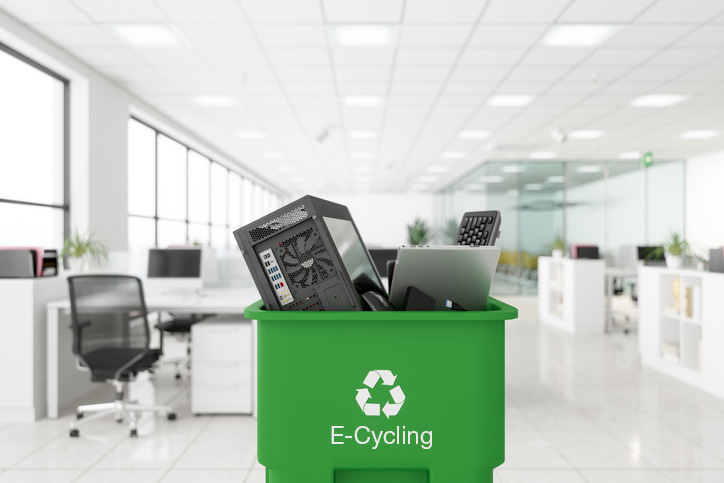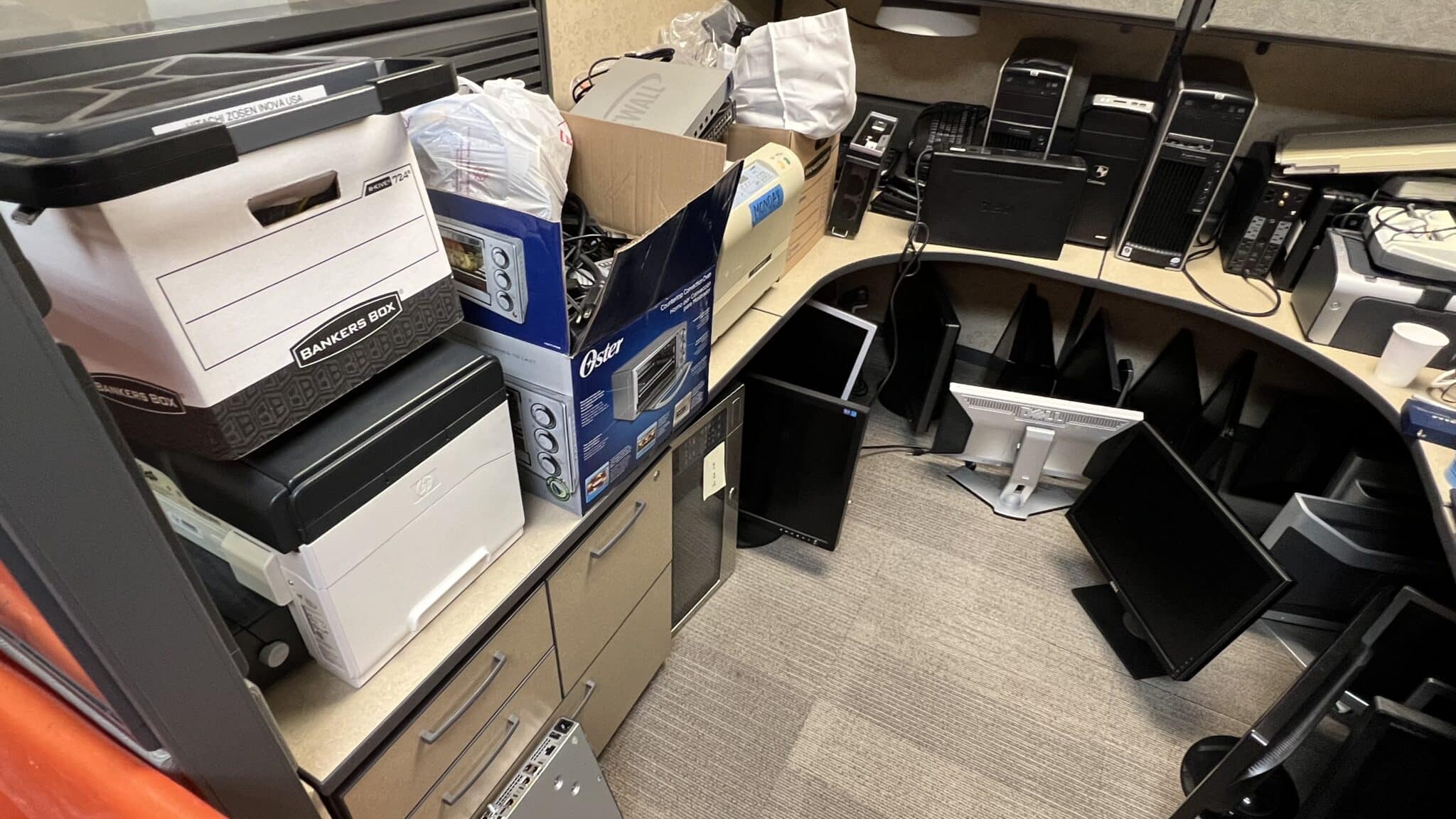Lasting Solutions: Embrace Eco-Friendly Computer Recycling Services
Lasting Solutions: Embrace Eco-Friendly Computer Recycling Services
Blog Article
Sustainable IT Solutions: Trustworthy Computer Recycling Provider
As innovation continues to advance at a fast speed, the concern of digital waste, or e-waste, has ended up being a pressing concern for both organizations and people alike. The inappropriate disposal of computer systems and other digital devices not only contributes to environmental destruction, yet additionally positions substantial threats to human health and wellness. In light of this, the need for reliable computer system recycling solutions has never been even more vital. In this discussion, we will certainly explore the environmental influence of e-waste, the advantages of responsible computer system recycling, just how to choose a reliable recycling solution, the reusing procedure for computer systems and electronic gadgets, and the role of government regulations in e-waste management. Join us as we discover the lasting IT remedies that can assist us navigate the intricacies of digital waste in a responsible and reputable fashion.
The Ecological Impact of E-Waste
The improper disposal of electronic waste, generally called e-waste, has significant environmental implications. E-waste refers to thrown out digital tools such as televisions, smart devices, and computers (computer recycling). These gadgets include hazardous products such as lead, mercury, cadmium, and brominated flame retardants, which can be hazardous to both human health and wellness and the atmosphere otherwise properly taken care of
When e-waste is incorrectly gotten rid of, it frequently winds up in land fills or is incinerated, launching harmful compounds into the water, soil, and air. The launch of these harmful products can contaminate groundwater, pollute the air, and add to dirt destruction, positioning significant health and wellness threats to nearby neighborhoods and communities.
In addition, the inappropriate disposal of e-waste likewise adds to the depletion of natural deposits. computer recycling. Numerous electronic tools have useful metals like gold, silver, and copper that can be recovered and reused if appropriately reused. When e-waste is not recycled, these useful sources are lost, and the demand for brand-new raw materials rises, leading to increased mining activities and further ecological destruction.
To alleviate the environmental influence of e-waste, correct recycling and disposal approaches need to be used. This consists of the accountable collection, taking down, and recycling of electronic gadgets to recuperate important products and ensure the risk-free monitoring of dangerous substances. Applying effective e-waste administration methods is important to protect the setting, preserve resources, and promote a lasting future.

Advantages of Liable Computer System Recycling
Properly reusing computer systems provides a wide variety of benefits, consisting of ecological preservation and source preservation. Accountable computer system reusing not only helps stop digital waste from ending up in garbage dumps, but it likewise reduces the requirement for basic materials and energy in the manufacturing of brand-new devices.
Among one of the most substantial advantages of accountable computer system recycling is the preservation of the atmosphere. When electronic waste is poorly disposed of, it can release harmful materials such as lead, mercury, and cadmium right into the soil and water, posing a hazard to communities and human health and wellness. By recycling computer systems, these damaging materials can be safely drawn out and disposed of, lessening the threat of contamination.
One more advantage is source preservation. Computer systems have valuable materials like gold, copper, light weight aluminum, and silver, which can be recovered and reused via recycling procedures. By removing and reusing these products, the need for mining new resources is minimized, preserving natural deposits and minimizing the ecological influence of source removal.
Furthermore, liable computer system recycling aids to lower energy consumption. Production new computer systems calls for a significant quantity of energy, from the extraction of raw materials to the setting up procedure. By recycling computer systems and recycling their elements, the energy-intensive manufacturing process can be avoided, bring about a decrease in greenhouse gas discharges and a much more lasting use energy resources.
How to Pick a Trustworthy Computer Recycling Solution
When choosing a computer recycling service, it is very important to take into consideration a few crucial elements to ensure that you choose a trustworthy and reputable service provider. First of all, it is critical to verify if the recycling service complies with correct environmental policies and techniques. A reputable company will have qualifications and certifications that show their commitment to liable recycling. Try to find accreditations such as R2 (Responsible Recycling) or e-Stewards, which make certain that the reusing process satisfies rigorous criteria for ecological protection and data security. Inspect if the service supplies safe and secure data damage. Information security is a vital problem when reusing computer systems, as sensitive details kept on old devices can be vulnerable to burglary or abuse. A trustworthy recycling solution should have secure information damage protocols in place, such as information wiping or physical damage of storage devices. In addition, think about the solution's record and credibility. Try to find testimonials or endorsements from previous clients to determine their degree of customer complete satisfaction and integrity. Lastly, think about the solution's openness and accountability. A reliable company ought to have the ability to supply in-depth information concerning their recycling procedure, consisting of how they manage hazardous products and make sure appropriate disposal. By considering these factors, you can choose a computer system recycling service that is moral, trusted, and environmentally accountable.
The Recycling Refine for Computer Systems and Digital Gadgets
To make sure responsible disposal and decrease environmental influence, understanding the recycling process for computers and electronic devices is essential when choosing a reliable recycling service. The recycling process for these devices usually entails several stages.
First of all, the devices are gathered from individuals, companies, or drop-off factors. This collection process might entail transportation logistics and safe and secure taking care of to secure the sensitive data contained within the gadgets. Once accumulated, the devices are arranged based on their type, such as desktops, laptop computers, or mobile phones.
After arranging, the devices undertake a comprehensive data damage process to guarantee that any kind of delicate or personal info is permanently erased. This action is crucial to safeguard the privacy and go to this website safety of people and organizations. Information devastation approaches may include cleaning, degaussing, or physical devastation of the storage media.
Next, the gadgets are dismantled into their private elements. This permits the splitting up of different materials, such as plastics, steels, and circuit boards. These materials are then sent to specialized reusing centers for further handling.
The recycling facilities make use of different methods to remove important products from the digital waste. These materials can be recycled or repurposed in the anonymous manufacturing of new items. The remaining waste is gotten rid of in an eco accountable manner, sticking to governing guidelines.
The Function of Federal Government Regulations in E-Waste Monitoring
Government regulations play a crucial function in the efficient administration of e-waste. With the continuous growth of the electronic devices market and the increasing worry for environmental sustainability, the need for correct disposal and recycling of electronic waste has become a lot more noticeable. Government policies aid to make certain that e-waste is taken care of in a lasting and accountable fashion.
Among the main functions of federal government policies is to set requirements and guidelines for e-waste monitoring. These regulations define the proper approaches for collection, transport, and recycling of electronic waste. By developing these requirements, governments can make sure that e-waste is managed in such a way that lessens its influence on the environment and human wellness.
This consists of implementing take-back programs, where suppliers are liable for accumulating and reusing electronic waste from customers. These policies help to change the burden of e-waste monitoring from the private consumer to the industry, making certain that electronic waste is managed in a much more lasting fashion.

Final Thought
In final thought, it is critical to consider the ecological effect go right here of e-waste and pick a credible computer system reusing solution to responsibly dispose of electronic gadgets. By adhering to government regulations and taking part in proper reusing procedures, we can reduce the unfavorable effects of e-waste on the environment and advertise a more lasting future.
In this discussion, we will explore the environmental impact of e-waste, the benefits of accountable computer recycling, exactly how to select a trustworthy recycling solution, the reusing procedure for computers and electronic tools, and the function of government regulations in e-waste administration. Computers consist of beneficial materials like gold, silver, aluminum, and copper, which can be recuperated and recycled via reusing processes.Furthermore, responsible computer reusing aids to decrease power intake. Information safety is a critical problem when reusing computer systems, as delicate information stored on old devices can be at risk to burglary or misuse. By thinking about these aspects, you can choose a computer system recycling solution that is honest, trusted, and ecologically responsible.
Report this page